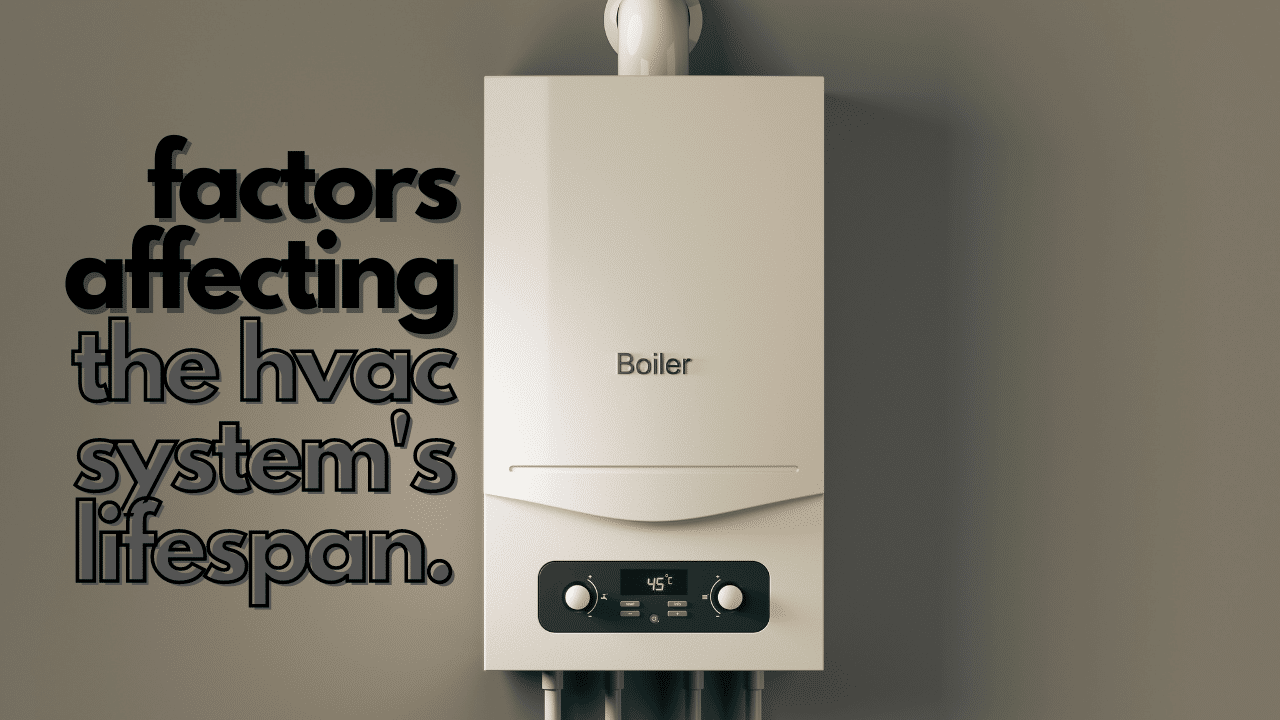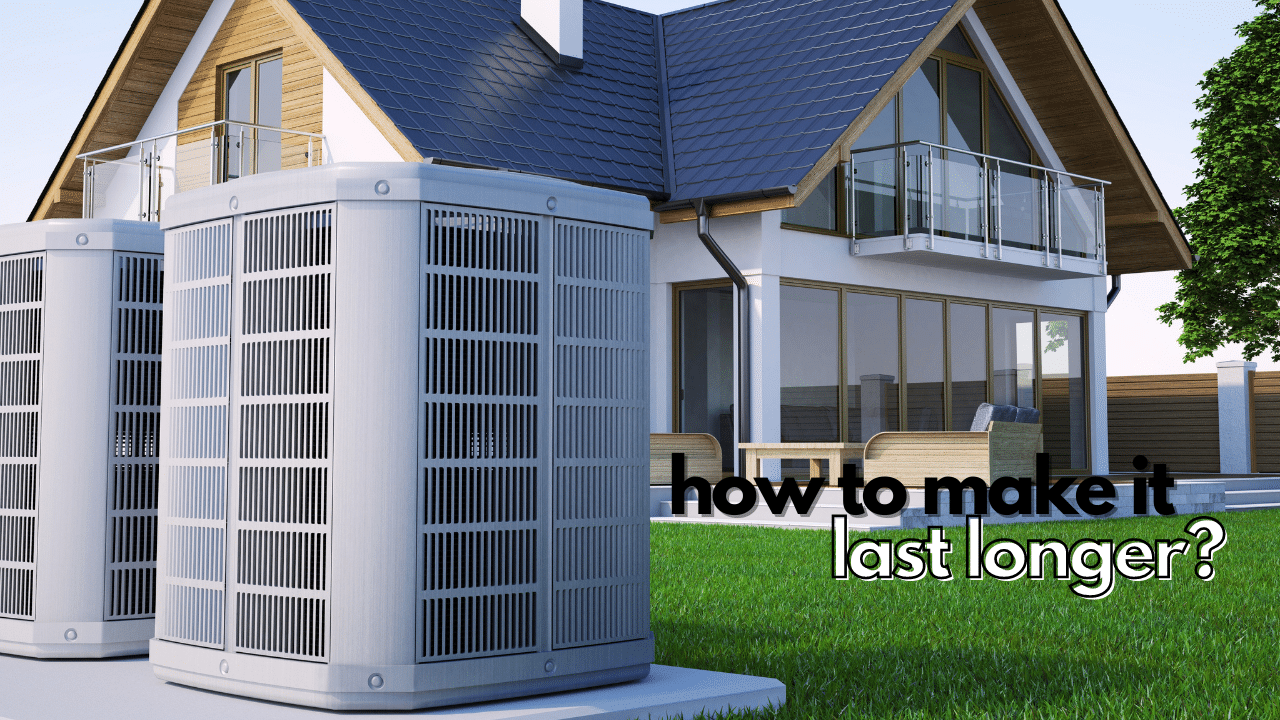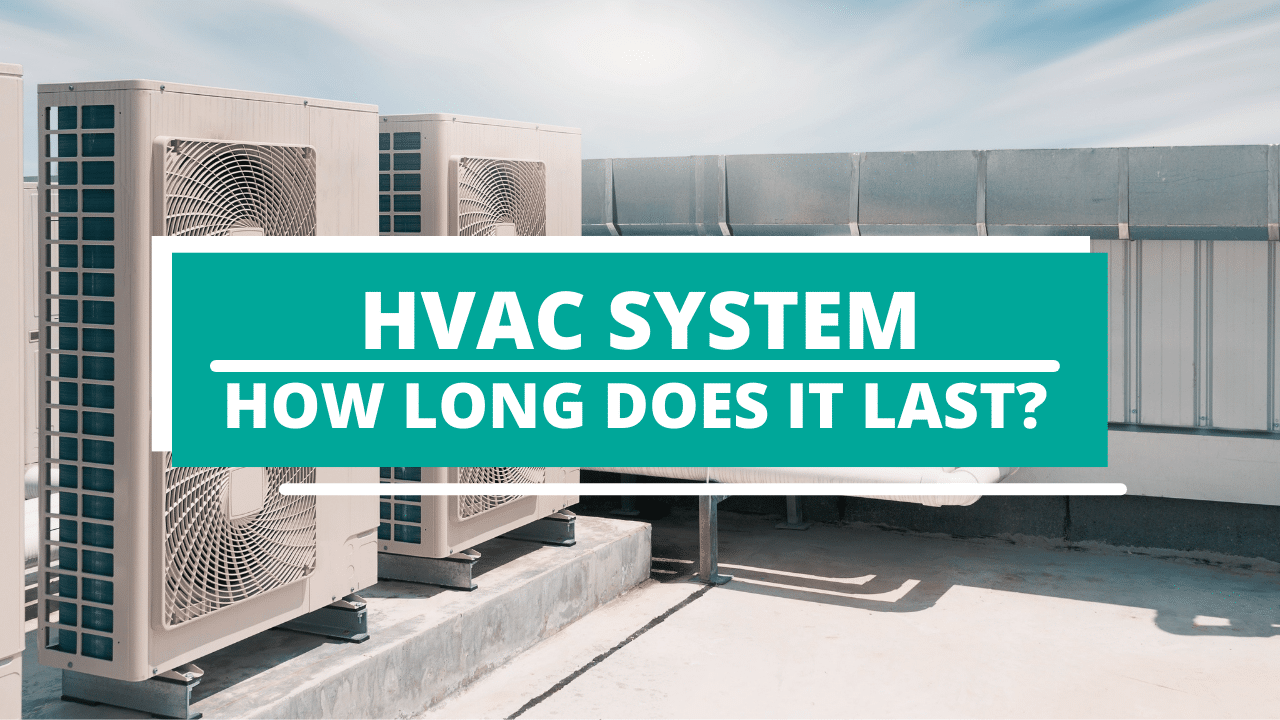Most modern homes rely on heating and cooling systems. This is because your HVAC system helps keep your property comfortable and habitable as the seasons change. While these systems do consume a lot of energy and can be a huge investment, they are worth purchasing and maintaining in the long run.
Still, how long will your HVAC system last, and when can you expect to replace this system? Many homeowners are curious about the answer to this question, and we will do our best to give you a good answer here.
How Long Do HVAC Systems Last?
In truth, HVAC systems have a variable lifespan. How long they last will depend on a number of factors. This includes how well you take care of your system and the overall quality of your HVAC system itself. To answer this question shortly though, you can expect an average HVAC system to last anywhere from 15 to 25 years.
Each HVAC system runs a little differently and will last a little longer or a little shorter depending on how you maintain it. But we will talk more about the specific lifespans of different HVAC systems throughout the rest of the post. This way you have a better idea of what you can expect.
We will also briefly get into how you can extend the life of your HVAC system and make it last longer at the end of this post. So, keep reading to find out everything you need to know about your HVAC system’s lifespan!
Lifespan of Different HVAC Systems and Equipment
In this next section of the article, we’ll talk about the expected lifespan of several different types of HVAC systems and equipment. Depending on what type of system you install into your home, your equipment will last for a different amount of time. This can differ even from the original 15 to 25 year lifespan we mentioned above.
So, you want to read over this section carefully to see how long your specific HVAC system will last in the coming years. Here are some of the most common HVAC systems and their lifespans:
Furnaces
If you have a furnace, this part of your system will last a lot longer than your typical AC unit. The average lifespan of furnaces is usually 20 years. But if you maintain your gas or oil furnace well you can expect this HVAC system to last anywhere from 20 to 30 years.
In some cases, your furnace could leak or become damaged. This will result in a need for a complete or partial replacement of your system. In particular, heat exchangers tend to break down if you do not maintain your furnace and they might need to be replaced.
Without proper maintenance, though, you can only expect 10 years of use with a heating furnace. On the other hand, if you have an oil furnace, and don’t maintain it well, expect a lifespan of around 15 years.
Air Conditioners
Nowadays, most homes are outfitted with air conditioning or some kind of AC unit. But, what is the typical lifespan of this HVAC system, and how long can you expect it to last under certain conditions?
For the most part, a typical air conditioner will be able to run anywhere from 10 to 15 years. 10 years is a more accurate estimate if you use your AC a lot but don’t maintain it well. Especially in hotter regions and coastal areas, the lifespan of your AC will go down, and will only have a lifespan of 7 to 12 years. This is because of the exposure to high humidity and salt in the air. (Related: 9 Things To Know About The Air Conditioning System In A Florida Home And #9 May Be The Most Important!)
In addition, the breakdown of the compressor or condenser in your system can also lead to a need for AC replacement and also lower the lifespan of your AC unit.
Heat Pumps
What about heat pumps though, how long can they last in comparison to other HVAC systems? Typically, you are looking at a lifespan that is a little longer than your average AC. A heat pump can last you 10 to 20 years. And if you want to look at the average lifespan, heats pumps usually stop working around the 15 years mark. This system also breaks down if the compressor or condenser does not work.
This is because both AC and heat pump systems tend to work and function in a similar way. However, heat pumps provide both heating and cooling properties to homes. What this means is that heat pumps will be used a lot longer throughout the year, so they will need more maintenance.
Also, in hotter regions of the world, heat pumps won’t last nearly as long. They will typically stay functional for only 12 years at most.
Ductless Mini-splits
A ductless mini-split is similar to a heat pump, as it provides both heating and cooling to your home. These systems can be a little more expensive to run. But they do provide a longer lifespan to your HVAC system.
Typically, you are looking at this system lasting anywhere from 10 to 30 years. With good maintenance, you will be closer to the 30-year mark. But if you live in a coastal region, expect this system to not last as long. A 15-year lifespan would be more accurate in a more tropical or hotter region of the world.
Boilers
Finally, boilers tend to have the longest lifespan of any HVAC system that we listed. Even in comparison to furnaces, you can see a much longer lifespan for your boiler. Boilers only provide heating to your home but expect to keep this system running for at least 20 to 35 years in total. Sometimes, parts might need to be replaced. For instance, your heat exchanger can leak, just like your furnace.
But other than this, boilers can be a great investment and will make your HVAC system last for a longer amount of time.

Factors Affecting the Lifespan of your HVAC System
So, we talked about how long your typical HVAC system will last depending on the type of equipment you have, but what other factors will affect your HVAC system and its lifespan?
- 1Maintenance of Your HVAC System: The best way to keep your HVAC system running for as long as possible is to maintain your HVAC system. Maintenance is key in extending and improving the lifespan of your HVAC equipment. If you can’t keep up with maintenance, then your system will not last as long and will go to waste. Maintenance involves cleaning your HVAC, checking for leaks, and keeping airflow unblocked. You can do a lot of this on your own, but you might have to call in a professional for more serious issues.
- 2The Quality of Your HVAC System: Another contributing factor is the quality of your HVAC system, not only will the type of HVAC system you have determine how long your HVAC system lasts, but so will the brand. Certain companies just make higher-quality equipment for your HVAC system. So, make sure that you are getting products that are made to last, and won’t break down easily.
- 3The Effectiveness of Your Equipment: Related to the quality of your equipment is the effectiveness of your HVAC system. If your HVAC equipment is built well and is energy efficient then it will last a lot longer. Equipment that comes with defects or is not built to spread heating or cooling efficiently will break down sooner.
- 4The Size of Your HVAC System (Oversized or Undersized): Finally, you want to consider the size of your HVAC system. If your equipment is not properly sized for your home, then this will impact the lifespan of your HVAC system. For instance, undersized HVAC systems will have to work harder to keep your house cooled or heated. This will lower the lifespan of your equipment.On the other hand, oversized HVAC systems will make energy costs higher and make it difficult to temperature control your home. If you change the settings of your system a lot this can put a strain on your equipment and lower its lifespan, as well.
Signs that you Need to Replace your HVAC System
- 1Your HVAC System is Getting Older. One of the easiest ways to tell if your HVAC system needs to be replaced is by considering the age of your system. If your equipment is going well beyond the average lifespan we have mentioned above, then it might be time to replace your system completely or get some parts replaced for better efficiency.
- 2Your HVAC System Frequently Breaks Down. Sometimes, though, HVAC systems do last longer than the average lifespan. However, if your equipment is breaking down a lot or doesn’t seem to be working well, then you need to replace your system as soon as you can. Especially if your system keeps breaking down even when you get repairs or regular maintenance done. Really getting tons of repairs or replacement parts can get expensive. So, it is better to just have your entire system replaced if it is not working properly and your system is getting older.
- 3Your Energy Bill Is Increasing Substantially. Finally, another sign that it might be time to replace your HVAC system is if you notice your power bill going up. This is more common with AC units but can happen with other types of HVAC systems as well.If your unit is starting to break down it won’t work well. This will lead to energy inefficiency and skyrocketing costs for your home’s monthly energy bill. You want to avoid paying extra for heating and cooling in your home by replacing your HVAC system and installing equipment that works and will save you money.
Consider calling in a professional to give you an estimate, and let them look at your system before you decide to replace anything or go with a new HVAC system. Your HVAC is an important investment that will help keep you and your family comfortable and happy. So, don’t buy cheaper or lower quality equipment if you decide to replace this home system.

How to Make your HVAC System Last Longer
- 1Schedule HVAC Maintenance and Inspections. As we have talked about extensively in this post, you want to make sure that you maintain your HVAC system properly. Some things can be done without help. But you also want to schedule regular appointments with a certified professional. This way you can have your equipment inspected and repaired if there are any problems. Parts of your HVAC system can start to wear down over time, so getting someone to look over your equipment is important, this way they can replace certain parts and make your system last and work longer.
- 2Change Your Air Filters Often. The air filters in your system also need to be changed regularly, especially if you have central heating or cooling. Filters can get clogged and this will affect the efficiency of your system. In short, if you don’t change your filters every 2 to 3 months, this will drastically reduce the lifespan of your HVAC system. So, keep this in mind. You don’t want your equipment to break down and work harder than it needs to.
- 3Keep Your Home Well Shaded With Landscaping Techniques. Finally, you can also improve the lifespan of your HVAC system by doing a little bit of landscaping around your property. Trees, bushes, and other fixtures can help shade your property and keep your home cooler naturally. This will make your HVAC system run more efficiently. In addition, though, you also want to keep trees and other plants away from your system. Keep them a good 3 to 5 feet away, this way your equipment doesn’t get damaged or disturbed as it works to regulate your home.

